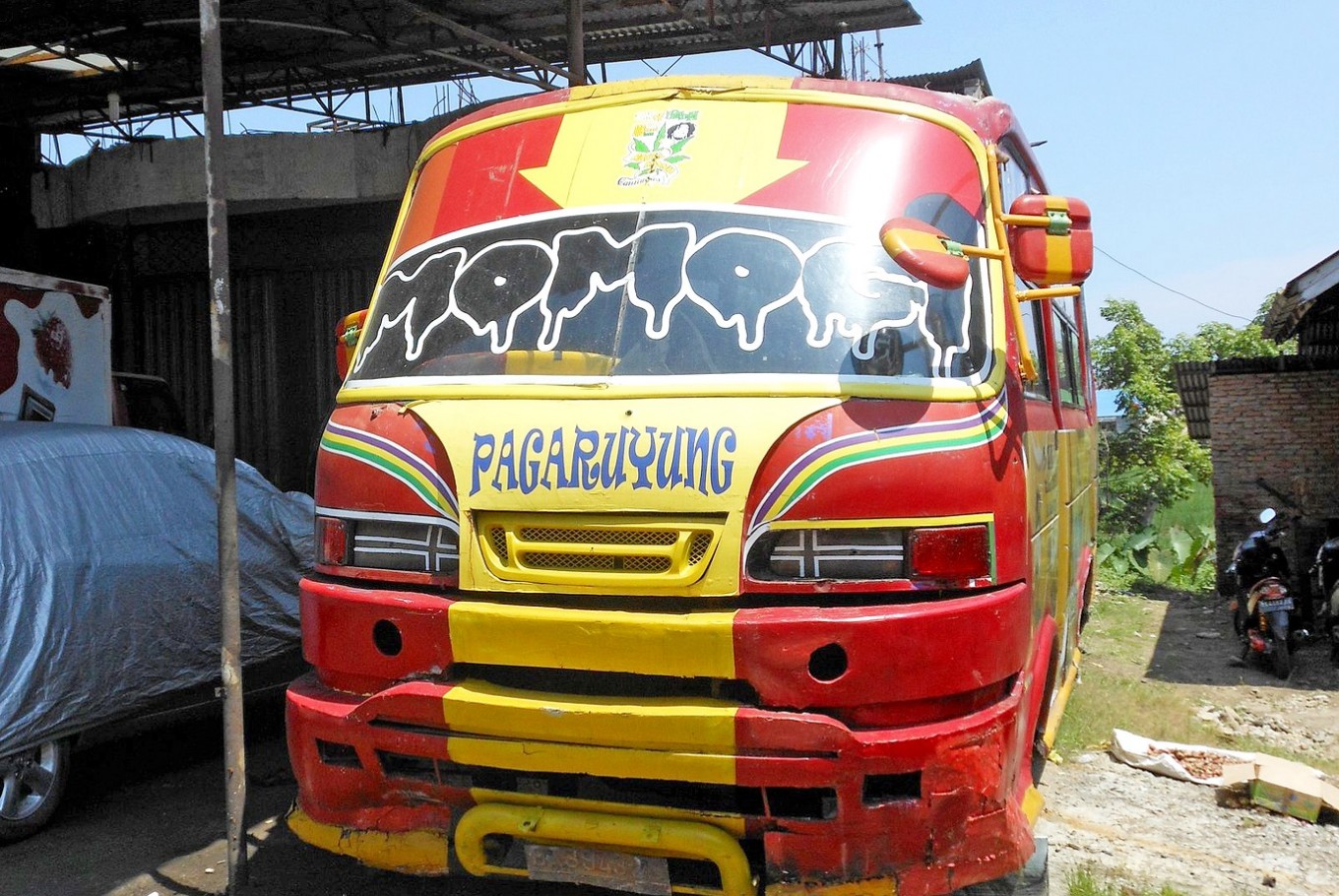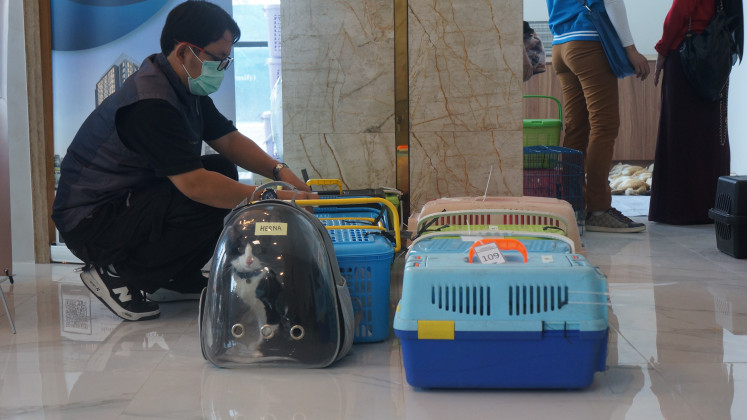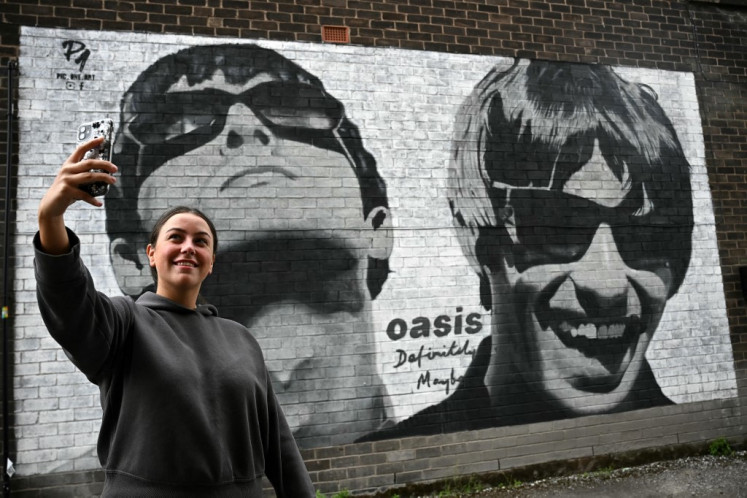Popular Reads
Top Results
Can't find what you're looking for?
View all search resultsPopular Reads
Top Results
Can't find what you're looking for?
View all search resultsDavid Reeve: Researching transports of delight
Australian David Reeve was at a wedding in Padang, West Sumatra, where he got excited by the “dramatic and memorable language and decorations” on angkot.
Change text size
Gift Premium Articles
to Anyone
 David Reeve (Erliana Graham/File)
David Reeve (Erliana Graham/File)
A
nyone who decades ago studied the Golkar Party at such depth that he scored a doctorate might by now be a cynical observer of Indonesian life.
But in 2006 Australian David Reeve was at a wedding in Padang, West Sumatra, where he got excited by the “dramatic and memorable language and decorations” on angkot — a squashed word for angkutan kota (city public transportation). They are the cheap drop-anywhere, wait awhile and overworked minibuses.
Apart from celebrating the betrotheds’ marriage, Reeve took notes and pictures of angkot. This was more an exercise in recording social phenomena when he met a publisher who commissioned a book.
Read also: Colorful portrait of Padang's public transportation
Academics everywhere know there are too many scholars chasing too few outlets for their words so the professor wisely selected the next angkot’s front seat where the hazards were marginally less: a gear shift in the ribs, a spine-hammer seat and the driver’s cigarette slipstream.
Had Reeve joined 15 others inside the cramped low-roof van (licensed for 10) he might have pondered re-titling his talks to Indonesian students as “Transports of Discomfort.”
“When I’m inside I spend much time working out how to exit with dignity,” he said.
The vans’ garish decorations as they cruise the West Sumatra capital thrust the “up-yours!” message of hormone-charged kids everywhere: We’re rebels waiting to grow-up. Decode our ciphers and blush.

Novice tourists who find angkot quaint often reverse their opinions after one trip. Reeve is no newbie being taken for a ride but a class-hardened lecturer whose Indonesian credentials started almost a half century ago and have yet to take a break.
He has taught at four of the Republic’s top tertiary institutions and is now a visiting fellow at the University of New South Wales. He’s also an Aspro — not a headache cure but an Associate Professor; Indonesia is not a sole trader in compressed language.
Reeve’s interests are not the mechanics of angkot (they seem to be largely powered by prayer) but the social attitudes fuelling the words and designs, particularly in Padang where the art throbs. Not to the level of the Philippine’s crazy-kitsch jeepneys, but more gaul (cool/trendy) than in any other Indonesian metropolis.
Sexual references are subtle, keeping tutt-tutters at a distance, though double-entendres and occasional obscenities get tolerated. (In Australia, laws now ban campervan companies from using sexually explicit and offensive signs on vehicle flanks to lure the foreign backpacker trade.)
Reeve is a funny man able to pack an auditorium with students who enjoy wordplay, such as highlighting the Malang angkot route ML — adolescent slang for sex (making love).
“Research can be fun,” said Reeve, 70, after exhausting addresses at three Malang campuses in two days before enthusiastic teens. “Students should look at daily life to see what’s happening to society. I encourage them to learn from their surroundings.”
He said Minangkabau culture awarded high status to verbal facility, so snappy words get recognized.
“There’s a tradition of proverbs and pantun [four-line poems that sometimes rhyme] and these get used,” he said.
“Padang angkot are under threat. There’s been a 10 percent reduction in the past three years. Authorities don’t like them. The business is being killed by bigger buses and cheap credit for motorbikes.” So catch an angkot while you can.









